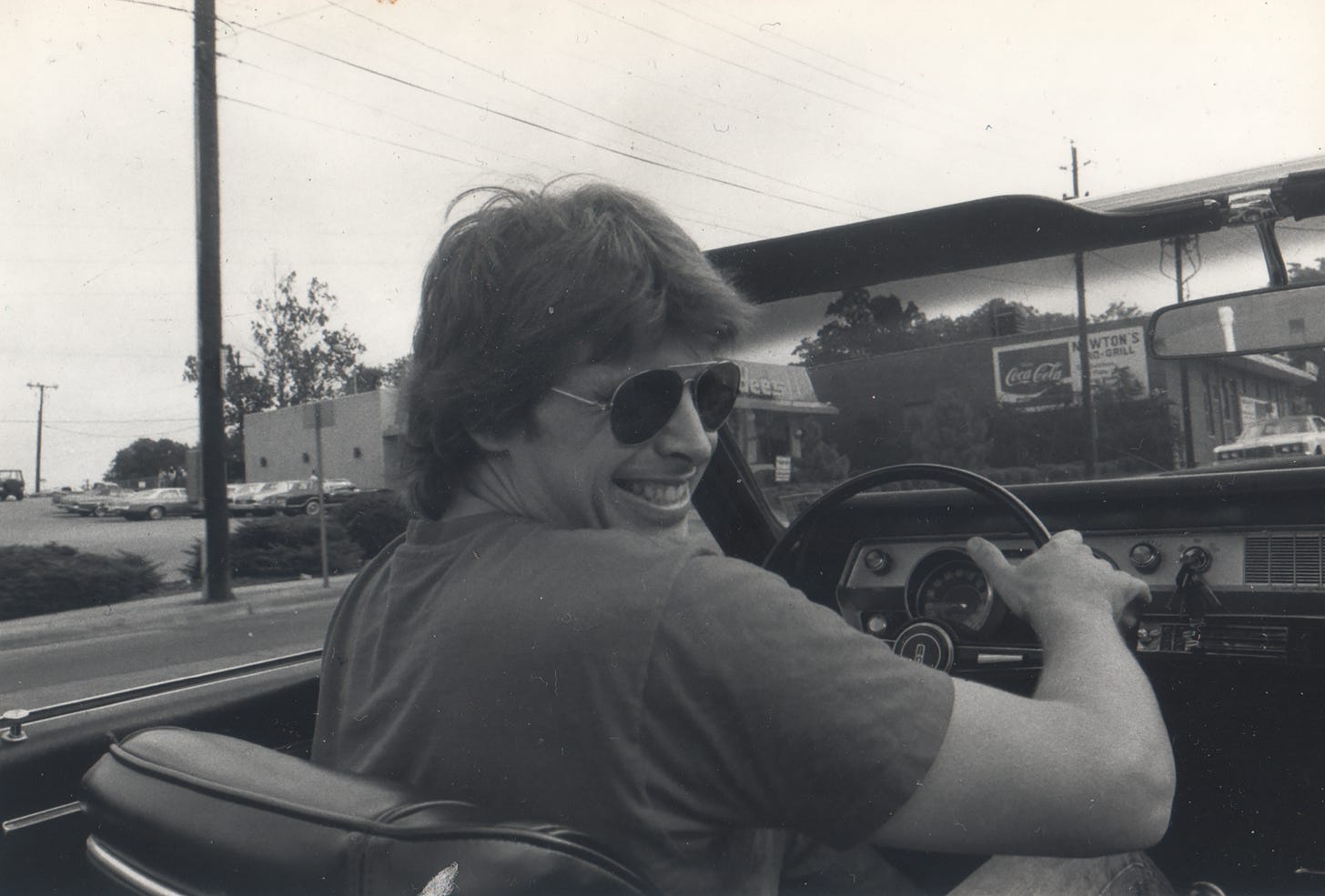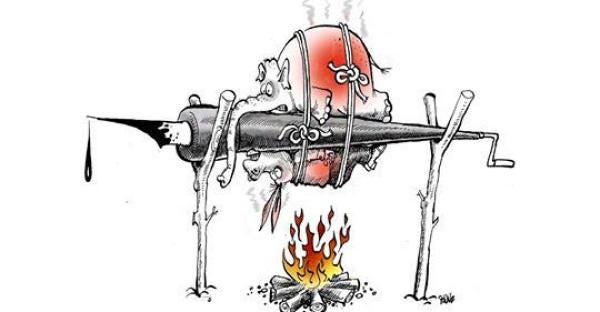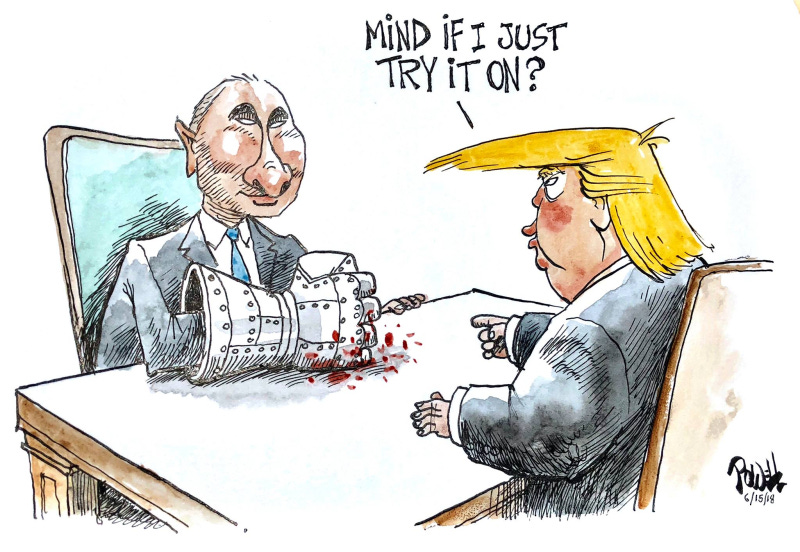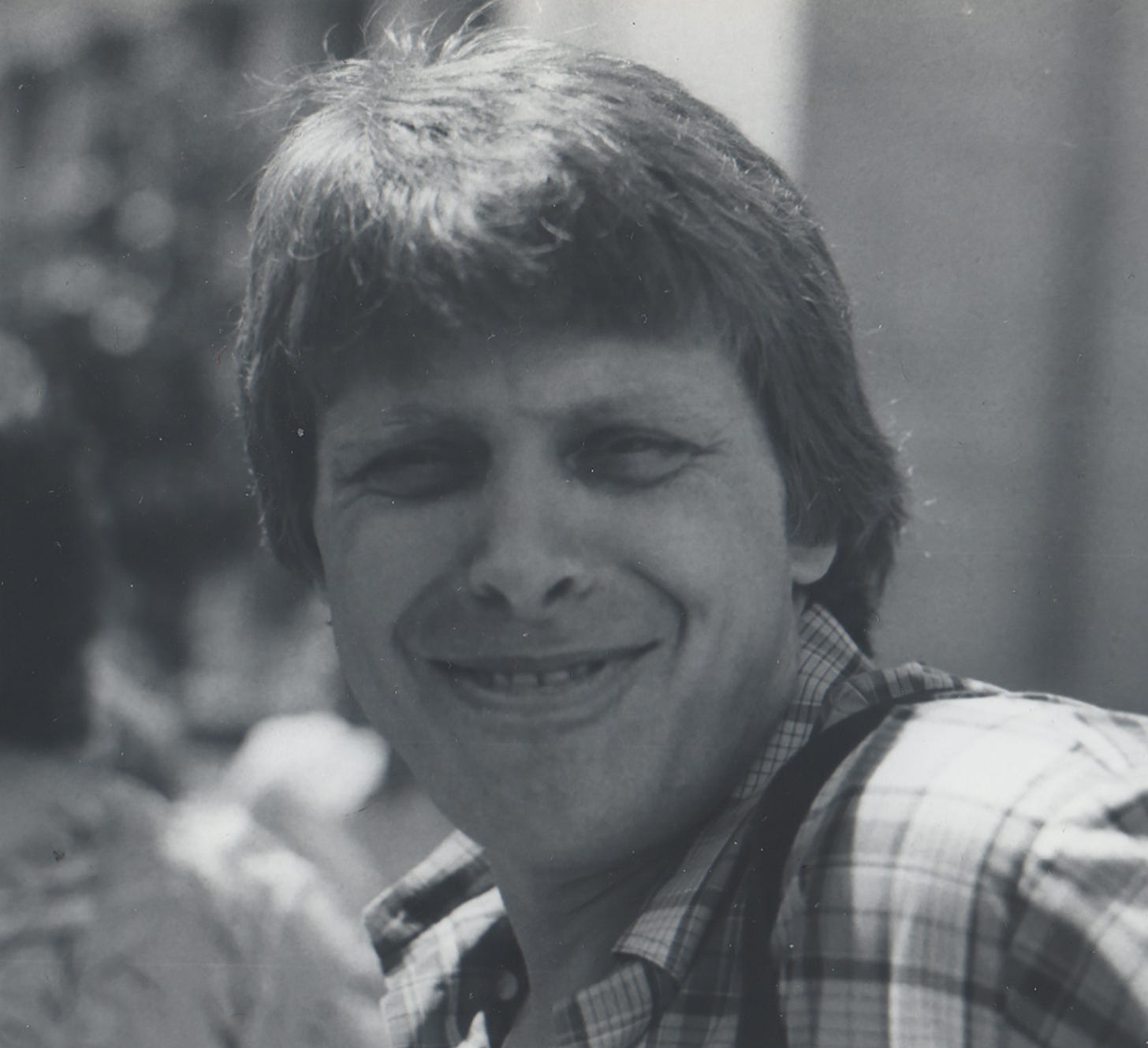
On more than one occasion I’ve been asked how my mind works and where I get my ideas, which is pretty much like asking how sausage is made and the truth is just about as appetizing.
But if you really want to know, here goes.
Step 1:
I was walking down the street in my neighborhood when a woman came out to drop a trash bag on the sidewalk and bent over while doing so. She was wearing what I believe are known as yoga pants which, depending on the woman inside them, may be the greatest invention in the history of mankind or reason to envy Stevie Wonder’s eyesight.
Step 2:
That got me thinking about people who should have been given some kind of award for what they achieved and that made me think of Willis Carrier, the guy who supposedly invented the air conditioner.
You’d think Willis would have won the Nobel Peace Prize by now because he sure as shit stopped a whole bunch of people from killing each other at two in the morning during an August heat wave in the Midwest.
Our motto?
“There are places that are colder and places that are hotter, but for year-round fucked up weather, we’re tops!”
Step 3:
That made my mind skip to another Willis and this time it was Bruce.
The sequels were crap, but the first “Die Hard” should have won an Oscar for maybe the best action movie ever made, but the Best Picture that year was “Rain Man” despite the fact that neither Tom Cruise or Dustin Hoffman jumped off a building barefoot while tied to fire hose.
You call that acting?
Step 4:
I then started making a mental list of people who should have won some kind of award, but never got the recognition they deserved and figured I could get a funny article out of that, but then my brain’s Flight of the Bumblebee landed on something that was actually kinda serious.
Step 5:
Dwane Powell never won a Pulitzer Prize.

Clone Wars
To understand why Raleigh News & Observer cartoonist Dwane Powell was a big deal it helps to understand where political cartooning stood in the late 1970s.
In those days there were about 300 political cartoonists in the United States and about 296 of them were copying Pat Oliphant or Jeff MacNelly.
Oliphant had come to the U.S. from Australia and brought along a style of cartooning that everyone wanted to emulate. Up until then most political cartoons were verticals which limited the action that could be portrayed. Pat’s horizontal shape made it easier to draw things and people on the move. And that wasn’t the only thing that made his work stand out.
Oliphant’s work was actually funny and fun to look at.
There’s no school that teaches you how to be a political cartoonist, so most us learned by copying someone we admired until we found something of our own and the same was true of Jeff MacNelly, the next giant step forward in political cartooning.
Look at his early stuff and it’s clear Jeff owed a lot to Oliphant, but was so artistically talented it didn’t take long for him to do original and unique stuff.
And that turned out be a problem.
Jeff was so damn good everyone wanted to copy what he was doing and other than the fact you were stealing someone else’s shit and doing nothing remotely original, it wasn’t a bad way to make a living.
I did it, too.
I had a bunch of Jeff’s cartoons and before I sat down to draw a horse I’d see how Jeff had done it, maybe I could learn something. Back then it was not uncommon to see one of Jeff’s old trucks or biplanes appear in someone else’s work.
Us MacNelly Clones – and I’m including myself even though I wasn’t very good at it – were letting someone else do the heavy lifting and make all the artistic decisions and were getting rewarded for doing so.
Guys were getting syndicated because they drew like MacNelly and lots of newspapers wanted their own MacNelly Clone. When I interviewed for a job with the San Diego Union an editor held up a MacNelly cartoon and asked if I could give them something like that, so I lied my ass off and said yes.
MacNelly was so good he stunted the development of American political cartooning for a long time. Normally you copied other people’s work until you found something of your own, but now people were getting paid to not develop; to not be original.
Hit the MacNelly Clone sweet spot and stay there.
Not having enough talent can be a blessing

Fortunately, a whole bunch of us realized we did not have Jeff’s talent for making political cartoons into fine art and if we weren’t going to be third-rate hacks for the rest of our lives we’d have to figure out something of our own.
Dwane Powell was one of the ringleaders.
I’ve heard the story told two ways, but early in his career Dwane showed some work to ex-Kansas City Star and then-Milwaukee Journal cartoonist Bill Sanders and Bill – who could piss off the Pope – told Dwane the world didn’t need another MacNelly or Oliphant or whoever the hell Dwane was emulating at the time.
Dwane said at first that pissed him off, but later decided it was the best thing that could have happened to him.
Once Dwane was freed up from drawing like someone else, his stuff went to another level and he began to draw cartoons that nobody else could have because nobody else thought the way Dwane did.
The Oliphant/MacNelly school of cartooning usually featured realistic perspective and often used everyday scenes. Dwane had a full-blown carnival going on inside his head and let the circus clowns out to play so we could see what he saw…and the results were brilliant.

Time machines with legs, Bill Barr as a hound dog with corks up his nose, Republicans and Democrats being roasted on a spit made of an ink pen, bats flying out of Donald Trump’s head, the White House equipped with a forked tongue…you could see one of his cartoons from across the room and know it was a Powell, you didn’t need to read the signature.
Watching Dwane’s work it dawned on me that style isn’t just how you present your ideas artistically, it’s the ideas themselves. Paul Conrad’s ideas were way different than Jeff MacNelly’s ideas which were way different than Dwane’s ideas.

Back when they had money to burn, newspapers would send us to the Association of American Editorial Cartoonists convention and while most of us didn’t get much out of the seminars, it was the late-night bullshit sessions that improved our work.
Dwane was usually in the middle of everything, sipping a beer, strumming a guitar and either making us laugh or laughing at us. But he was always encouraging and if you wanted to have a serious talk about cartooning, Dwane was always available.
Dwane was also the first guy I ever heard talk about the power of local cartoons.
As he pointed out, we could draw about the President every day for a month and it wouldn’t bother him one bit because he probably wouldn’t see any of it. But draw just one cartoon about a local politician and he or she and their spouse and family and friends would see it and talk about it and make the politician’s day miserable.
Give them enough miserable days and maybe that local politician will quit doing the shit that’s bugging you.
So while the rest of us were trying to be political cartooning rock stars – which is laughable because there is no such thing – Dwane Powell was digging in and making a difference locally and he inspired me to try to do the same thing in Kansas City.
Our last conversation
This past April Dwane Powell was very sick and I offered to fly to Raleigh, N.C. to see him, but his wife suggested a phone call instead. Jan said he was having good and bad days and maybe we could pick a time to talk when he felt up to it.
So we did and he sounded like the same old Dwane, but weaker – like he was fading away, which I guess he was.
We told each other we loved each other before we said goodbye and when we hung up we both knew we’d never have another conversation. All those late-night talks about our craft and our lives had come to an end.
And then I sat in a park near my house and cried like a baby.
The Pulitzer Prize
I have gotten way past the point of thinking anyone owes me anything. I’ve done OK with what I’ve been given and won’t bitch because I didn’t get a cherry on my free ice cream Sundae.
But I can get pissed off on someone else’s behalf.
The Pulitzer Prize is a subjective award; it’s not the hundred-yard dash so you can’t say for sure anyone deserves one, but if they’re going to give out an award and say it’s for the best cartoonist in the country it’s hard to see how they missed giving one to Dwane Powell and I know a shitload of cartoonists who agree with me.
So let’s go back to where we started: Dwane Powell should have won a Pulitzer Prize.
And while they’re at it, maybe they should give an honorable mention to the guy who invented yoga pants.



